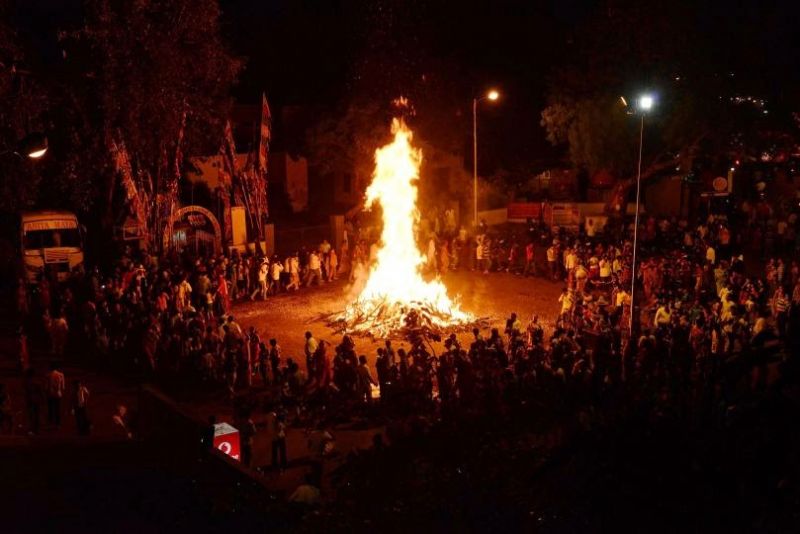
Holashtak, spanning from Falgun Ashtami to the day of Holika Dahan, encompasses eight days considered inauspicious in Hindu tradition. During this period, it is believed that auspicious activities should be avoided, although worship of deities is still regarded as significant. Events like marriages, housewarming ceremonies, property transactions, and vehicle purchases are typically postponed. Holashtak commences eight days prior to Holika Dahan, beginning this year from March 17th to March 24th.
The significance of these eight days stems from various beliefs and cultural practices deeply embedded in Hindu mythology and astrological interpretations:
Planetary Positions: Astrologically, the alignment of celestial bodies during Holashtak, including the Sun, Moon, Mars, Mercury, Jupiter, Venus, Saturn, and Rahu, is deemed unfavorable. According to astrological principles, these planetary configurations can generate negative energies that might obstruct auspicious endeavors.
Legend of Prahlad: Holashtak is linked to the legend of Prahlad, the devout devotee of Lord Vishnu. It is said that eight days before Holika Dahan, Hiranyakashipu, Prahlad's father, made numerous attempts to kill him. These days are considered inauspicious as they were marked by atrocities inflicted upon the devotee Prahlad.
Influence of Negative Energy: During Holashtak, there is a belief that negative energies become more potent, potentially disrupting positive activities. It is believed that malevolent spirits become active during this period, posing obstacles to auspicious undertakings.
Emphasis on Religious Observances: Holashtak is a time for devout observances, spiritual practices, and focusing on religious rituals. Many individuals observe fasting, engage in charity, perform prayers, and participate in devotional singing to seek divine blessings and protection during this period.
Societal Beliefs: According to societal norms, undertaking auspicious activities during Holashtak might lead to unfavorable outcomes. Hence, people refrain from initiating new ventures or significant life events during this time.
The duration of eight days in Holashtak is attributed to the movement of the Moon through eight zodiac signs, with each sign hosting the Moon for approximately 2.25 days. However, it's essential to recognize that beliefs surrounding Holashtak may also include elements of superstition. Individuals who do not adhere to such beliefs may choose to proceed with auspicious activities during this period without hesitation.
It's worth noting that certain auspicious ceremonies such as weddings, housewarmings, and tonsures can still be conducted during Holashtak under the guidance of an astrologer.
In conclusion, Holashtak serves as a period of reflection, spiritual renewal, and adherence to cultural traditions. While some perceive it as inauspicious, others view it as an opportunity for deeper spiritual practices and alignment with cosmic energies. Ultimately, the interpretation and observance of Holashtak vary among individuals and communities, reflecting the rich diversity of Hindu beliefs and customs.
When does Holashtak Begin? Learn What to Do and What Not to Do During This Time
Does science really say what heaven and hell are after death?
"Unlocking the Secrets of the Soul: A Quest for Meaning"